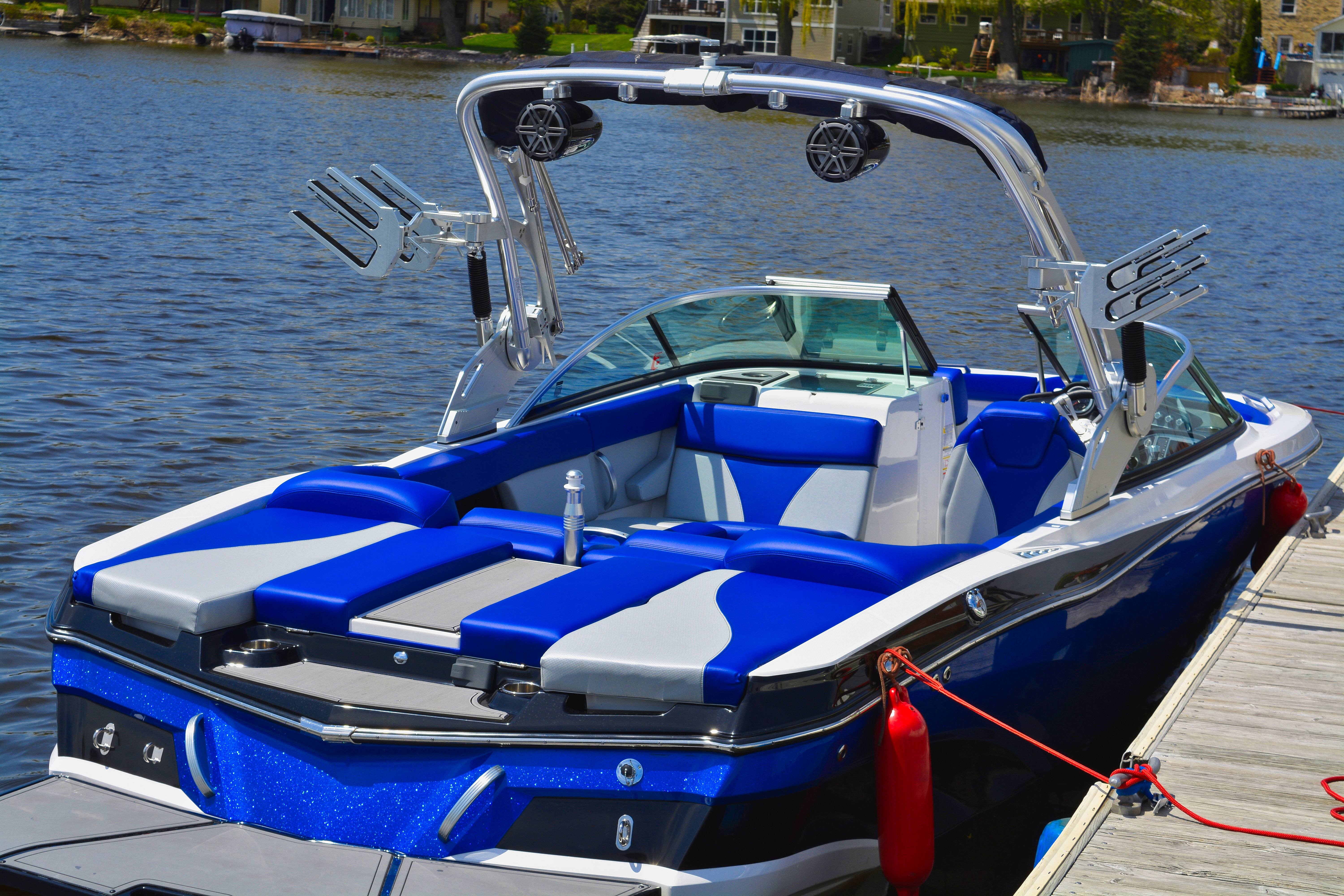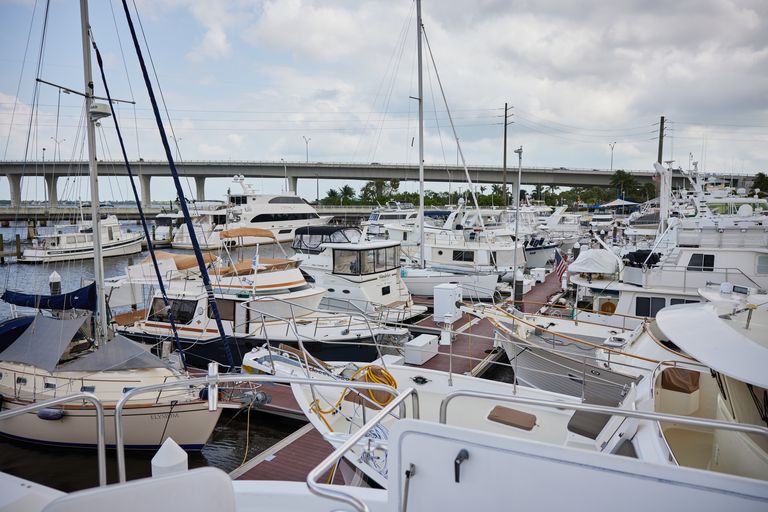Why You Need Boat Insurance: 9 Questions and Answers

Whether you already own a boat or are considering purchasing one for the upcoming boating season, it's time to consider boat insurance.
However, we realize you might have questions, like "do you have to have insurance on a boat?" Or, do you need additional coverage if you already have "some" coverage?
BOATERexam is here to help! Protecting your boat (and other boaters) with a good insurance policy is essential to safe boating. So, today, we discuss nine questions and answers boaters often have about insuring their boats.

Question 1: Do You Have to Have Insurance on a Boat?
Most states don't require boat owners to insure their boats. In one of these states, you'll only need to insure your boat if it has an engine that produces more than 50 horsepower.
Additionally, Canada doesn't currently require boat owners to insure their boats.
However, some states have additional insurance requirements for boaters that meet specific criteria, and state requirements can always change. So, while we'll provide some good information in this resource, we recommend that you verify boat insurance requirements with your state marine board or other governing body.
Your Banks or Marina Could Require It
Even if your state doesn't require it, many banks that fund boat purchases do require owners to cover their boats with an insurance policy. Additionally, many marinas place insurance requirements on boats stored at their docks.
So, if your boat loan uses the boat as collateral, your bank will likely require boat insurance coverage.
Some lenders may even forcibly place a marine insurance policy onto your boat if you don't provide proof of insurance on the vessel.
Consider Your Risk Tolerance
Consider your risk tolerance beyond what your state, bank, or marina may require. This could be the ultimate determining factor for your boat insurance decision.
Not insuring your watercraft could be a costly mistake. An insurance policy can help offset the risks of operating a boat on the water and set your mind at ease for a more enjoyable boating season.
Boats are a significant investment. Without a good insurance policy, it can be expensive to deal with the damages in the event of an unexpected repair or accident.
The right insurance also protects you if someone gets injured while riding in or operating your boat. So, take the time to learn about your options and be aware of the risks before choosing to insure (or not to insure) your boat.
Question 2: Does Your State Require Boat Insurance?
While state requirements can always change, as of this writing, only two states have boat insurance laws. These states are Utah and Arkansas.
In some instances, states require insurance for boats used in some state parks or kept in specific state-operated marinas. So, check with your state marine board or alternative governing agency to learn the requirements.
Utah's Requirements
Utah requires all motorboats and PWCs to carry owner's or operator's liability insurance when operated on Utah waters. However, motorboats with engines less than 50 horsepower and airboats are exempt.
Boat owners must follow the following minimum coverage limits for each watercraft:
- $25,000 for bodily injury (per person)
- $50,000 for total bodily injury if multiple people are injured in the accident
- $15,000 for property damage
Remember: it is illegal to operate a PWC on Utah waters without the required insurance.
Arkansas Requirements
Boat owners in Arkansas must have liability insurance for all motorboats powered by engines of more than 50 horsepower and all PWC (personal watercraft).
Your policy must provide at least $50,000 of liability coverage. Like Utah's requirements, operating a boat or PWC in Arkansas without the required insurance is illegal.
Question 3: What Kind of Boat Insurance Do You Need?
There are several options when considering the type of boat insurance you need.
Boat insurance can fall into a few categories: liability, uninsured boater, and collision/comprehensive coverages.
While other options and add-ons could be helpful based on your boat's equipment or other needs, a policy in one or more of these three primary categories is a good place to start.
Liability Insurance
Most banks, marinas, and states with requirements will have a minimum request for boat liability insurance. When operating your boat or PWC, this type of coverage protects you in case of bodily injury or property damage.
While recommendations vary widely, many experts recommend having at least $100,000 in liability insurance. However, you might need more liability coverage if you have a fast, powerful boat. These vessels can be a bigger risk on the water and can cause more damage.
Uninsured Boater
What happens when the other boat doesn't have coverage? You need uninsured or underinsured coverage to protect yourself.
This type of coverage provides protection for injuries and damages for you or your passengers if the other boater involved in your accident doesn't have enough (or any) insurance on their boat.
While it can be tempting to skip this coverage and assume everyone has insurance, uninsured boat coverage can help you avoid significant out-of-pocket costs when recovering from an accident caused by another boater.
Collision and Comprehensive Coverage
When shopping for collision and comprehensive coverage policies, consider the value of your boat. These policies cover events out of your control, like a boat fire, vandalism, damage from wind or forces of nature, and theft.
Question 4: What Does Boat Insurance Cover?
Beyond understanding the types of coverage you might need for your boat, let's talk more about what boat insurance covers.
Standard boat insurance coverages include:
- Liability for property damage: Coverage includes the cost of damages to another person's property if you cause an accident.
- Collision damage: After you pay your deductible, collision policies cover the costs of repairing or replacing your boat or personal watercraft.
- Hull insurance: This coverage is for physical damage to your boat and can include motors, trailers, equipment, and accessories.
- Bodily injury liability: If you are found responsible for a boating accident, this coverage pays for the costs associated with injuries to other people involved.
- Fuel spill liability: If you're facing fines for a fuel spill, this separate policy can cover those fines.
Most boat owners probably don't need all of these policies, but it's crucial to protect your boat and finances with the policies you need. Work with an insurance provider like BOATSmart! Assure to determine what you need!
Question 5: So, How Much Boat Insurance Do You Need?
As noted earlier, some states, banks, and marinas have minimum boat liability insurance coverage requirements. So, check with your state government, lender, or a boat insurance provider like Progressive for recommendations about "how much" is the right amount of coverage.
Next, consider your risk tolerance again. You may not "need" it, but having it could help set your mind at ease and offset the costs of an accident or act of nature. You'll also want to consider factors like the boat's value, age, and motor size.
Additionally, you'll likely find that high-performance boats often need a higher level of coverage to compensate for the damage they can inflict.
Question 6: What is the Best Type of Boat Insurance?
The "best" type of boat insurance is coverage that meets your contractual or legal obligations. It also helps you feel comfortable about your risk exposure.
Because every situation is different, the right coverage considers what matters most to you and your family. Research your options and speak with multiple insurance brokers or agencies to determine the best boat coverage for your needs.

Question 7: Is Boat Insurance Costly?
It doesn't have to be, and the right policy (or mix of policies) should be affordable so you can enjoy your boat on the water! The more research and price comparing you do, the more likely you are to find the boat insurance quote that fits your budget while providing the right amount of coverage.
Try the following tips to get your money's worth and reduce costs.
Don't Buy More Than You Need
While you can certainly buy every boat policy available to cover all of your bases, doing that can be expensive.
There are many options for insuring your boat, and many policies can be custom-written for your needs. Research to know what you do need to avoid paying for unnecessary and costly features you don't need.
Understand Agreed Value vs. Cash Value
What's the difference between "agreed value" and "cash value?" Can either one save you any money?
With agreed-value policies, you and your insurer agree on the boat's value upfront. It's a pre-determined value for the vessel in the event of a total covered loss.
Most agents recommend this option for newer or late-model boats. However, as the boat ages (or if you have an older boat), ask about switching to a cash-value option to lower your premiums.
Take a Boating Safety Course
Most boat insurance companies offer discounts for boaters who recently completed an approved boating safety course.
So, if you're looking for a good way to save money on your boat insurance, check with your insurance company about a discount and take a boater education course online through BOATERexam.
Spend Money on Safety Gear
A well-stocked boat with the right safety equipment can also reduce your insurance costs.
Insurance companies may offer an additional discount for having extra safety features onboard your watercraft. Check with your agent to see if you qualify and what equipment you need for the discount.
Question 8: How Much Does Boat Insurance Cost?
While costs can vary based on the size of your boat, its location, your policies, and any applicable discounts, Progressive Insurance notes that costs typically range from $277 to $753 per year.
What's a good measure of affordable insurance premiums? Look for policies that provide the coverage you need with annual premiums of around 1.5% of the current market value of your boat.
Question 9: Which Company Offers the Best Boat Insurance Rates?
You'll find many insurance companies offering competitive boat insurance rates through your research.
In the U.S., Progressive is often listed among the top boat insurance companies if you're looking for a good place to start when shopping around. Gather all the information you need to make an informed decision based on quality, coverage, and cost.
You can also speak with other boaters to learn about the insurance features that are important to them and why.
Learn More about Protecting Your Boat and Staying Safe with BOATERexam
Insuring your boat is an excellent first step toward protecting your boat and others on the water – but don't stop there!
In addition to finding the best insurance coverage for your boat, take a government-approved boater safety course through BOATERexam! Your boating safety course takes place entirely online, making learning and passing your exam from anywhere easy. Find your state or choose your course in Canada to prepare for the water this season.



